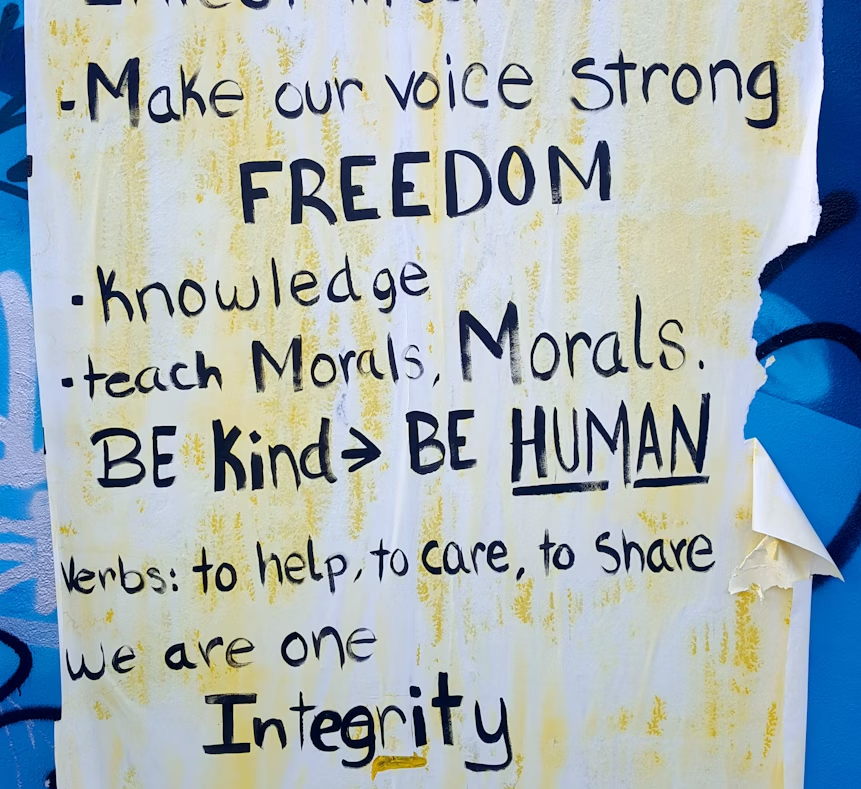Humanity stands at a crossroads. For centuries, morality and values were shaped by tradition, religion, community, and slow-moving cultural evolution. Liberalism and conservatism emerged as ideological compasses, guiding how societies navigated freedom, responsibility, progress, and preservation. But in the modern age — defined by AI, abundance, global interconnectivity, and rapid social change — these compasses no longer point in a singular direction. The lines blur. And with it, so does our collective understanding of morality.
The Shifting Grounds of Morality
Morality once had anchors: scripture, law, culture, and shared myth. Today, those anchors are contested, questioned, and sometimes abandoned.
-
Social Media Justice: A tweet can ruin reputations faster than any legal process. “Cancel culture” raises questions: is it accountability, or mob rule?
-
Personal Truth vs Shared Reality: From gender identity debates to online echo chambers, the meaning of “truth” itself is fragmented.
Without shared foundations, morality risks becoming not a compass, but a kaleidoscope—beautiful to some, disorienting to others.
Liberalism vs Conservatism: A False Binary?
Traditionally, liberalism promised freedom, progress, and individual rights, while conservatism defended tradition, order, and continuity.
Yet in 2025, the roles invert and collide:
-
Liberals champion free expression—yet also call for AI-driven censorship to combat misinformation.
-
Conservatives defend tradition—yet embrace disruptive populist movements that tear down established institutions.
-
Both sides weaponize morality when it suits power, revealing contradictions in their own narratives.
Maybe the binary itself has expired. Perhaps we are moving toward a post-ideological age where survival requires hybrid thinking: liberal in innovation, conservative in wisdom, spiritual in grounding.
Technology as the New Arbiter of Values
Technology is no longer neutral — it decides.
-
AI Censorship: Algorithms flag or suppress “harmful content,” but who decides what’s harmful? An AI model? A corporate board? A government?
-
Biotech & Morality: Gene editing sparks debates once reserved for philosophers. Should we enhance intelligence? Eliminate disease? Or are we “playing God”?
-
Crypto & Blockchain: Decentralization challenges traditional hierarchies of power, raising questions of accountability vs freedom.
In this context, morality is no longer philosophical—it is technological. Whoever controls the code, controls the values.
The Crisis of Meaning
When morality fragments, and ideology dissolves, humans face a deeper void: the crisis of meaning.
-
Buy Now, Pay Later apps promise instant gratification but erode financial responsibility.
-
Gambling platforms disguise addiction as entertainment, feeding dopamine loops.
-
AI-generated art, writing, and companionship blur the line between authentic human experience and synthetic simulation.
If values are subjective, how do we live together? If tradition is outdated and progress is unstable, where do we anchor our souls?
Toward a New Moral Framework
Perhaps the future demands a new synthesis of values:
-
Responsibility over blind freedom.
-
Wisdom of tradition balanced with openness to progress.
-
Human dignity that transcends algorithms and tribal politics.
-
Spiritual coherence in a world fractured by infinite choice.
The question is not whether we are liberal or conservative, but whether we are conscious enough to design morality for the age of abundance, AI, and global interconnectedness.
Closing Thought
The moral compass of humanity is not broken—it is recalibrating. The true danger is not disagreement between liberalism and conservatism. The danger is forgetting the deeper human values that must underlie both: empathy, responsibility, truth, and meaning.
In the modern age, morality will no longer be handed down. It must be chosen, created, and lived—by each of us!

